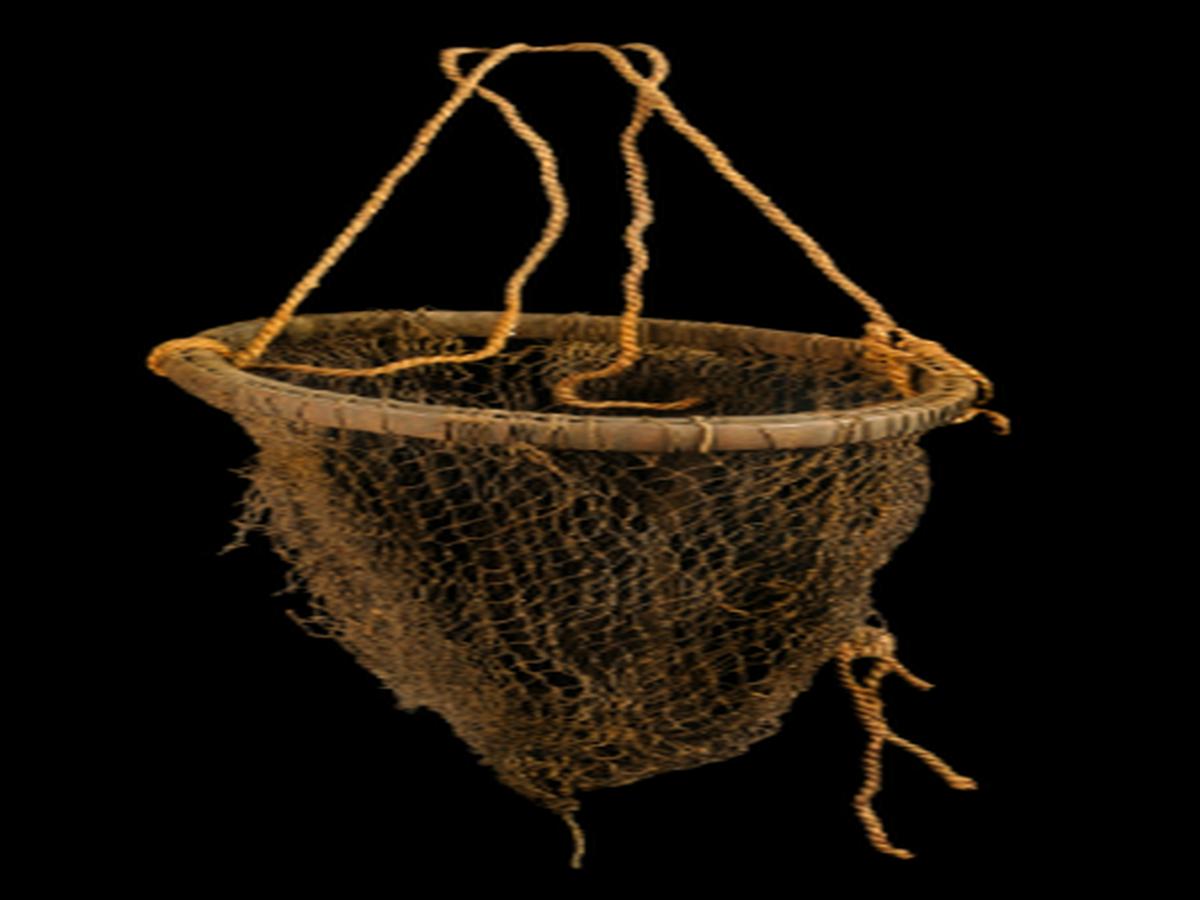State
Tribe Name
Art Type
short description
The Bagdis, a tribe mainly engaged in riverine fishing subsisting in food and livelihood in West Bengal and parts of Odisha and Jharkhand, have an imprinted tradition of fishing. One of their finest traditional fishing tools is the Purse-Jal-a rectangular fishing net-exemplifying their rich aquaculture wisdom and indigenous craftsmanship. The net of Purse-Jal is made out of cotton thread knitted in such a way that a squarish or rhomboid-shaped hole is formed, allowing free passage of water but freely choking the fish. The special features are that it has a circular wooden frame fixed to the net, giving it better structure and mobility while working. It is this contrasting combination of frame and netting that gives this tool the purse-like look and hence the name "Purse-Jal."
Thumbnail

Filter Postion
Left
Filter Background
Off
Theme
Filter Header Image

content
Image

description
The Bagdis, a tribe mainly engaged in riverine fishing subsisting in food and livelihood in West Bengal and parts of Odisha and Jharkhand, have an imprinted tradition of fishing. One of their finest traditional fishing tools is the Purse-Jal-a rectangular fishing net-exemplifying their rich aquaculture wisdom and indigenous craftsmanship. The net of Purse-Jal is made out of cotton thread knitted in such a way that a squarish or rhomboid-shaped hole is formed, allowing free passage of water but freely choking the fish. The special features are that it has a circular wooden frame fixed to the net, giving it better structure and mobility while working. It is this contrasting combination of frame and netting that gives this tool the purse-like look and hence the name "Purse-Jal."
These tools are largely used in rivers, ponds, and marshy areas for seasonal fishing with the expectation that water levels would allow operability and access to the fish. Either dragging or lowering techniques are used to hold fish, particularly small to medium species, found in freshwater habitats in East India. Such is the significance of a Purse-Jal that for Bagdis, it is more than just a tool; it becomes a symbolic repository of age-old traditional knowledge of fishing passed on to them through generations. Use of biodegradable and natural materials like cotton and wood signifies their traditional fishing practices and highlights their sustainable practice.
These tools are largely used in rivers, ponds, and marshy areas for seasonal fishing with the expectation that water levels would allow operability and access to the fish. Either dragging or lowering techniques are used to hold fish, particularly small to medium species, found in freshwater habitats in East India. Such is the significance of a Purse-Jal that for Bagdis, it is more than just a tool; it becomes a symbolic repository of age-old traditional knowledge of fishing passed on to them through generations. Use of biodegradable and natural materials like cotton and wood signifies their traditional fishing practices and highlights their sustainable practice.
Image Mode
landscape
promoted
On
Verified
Off
